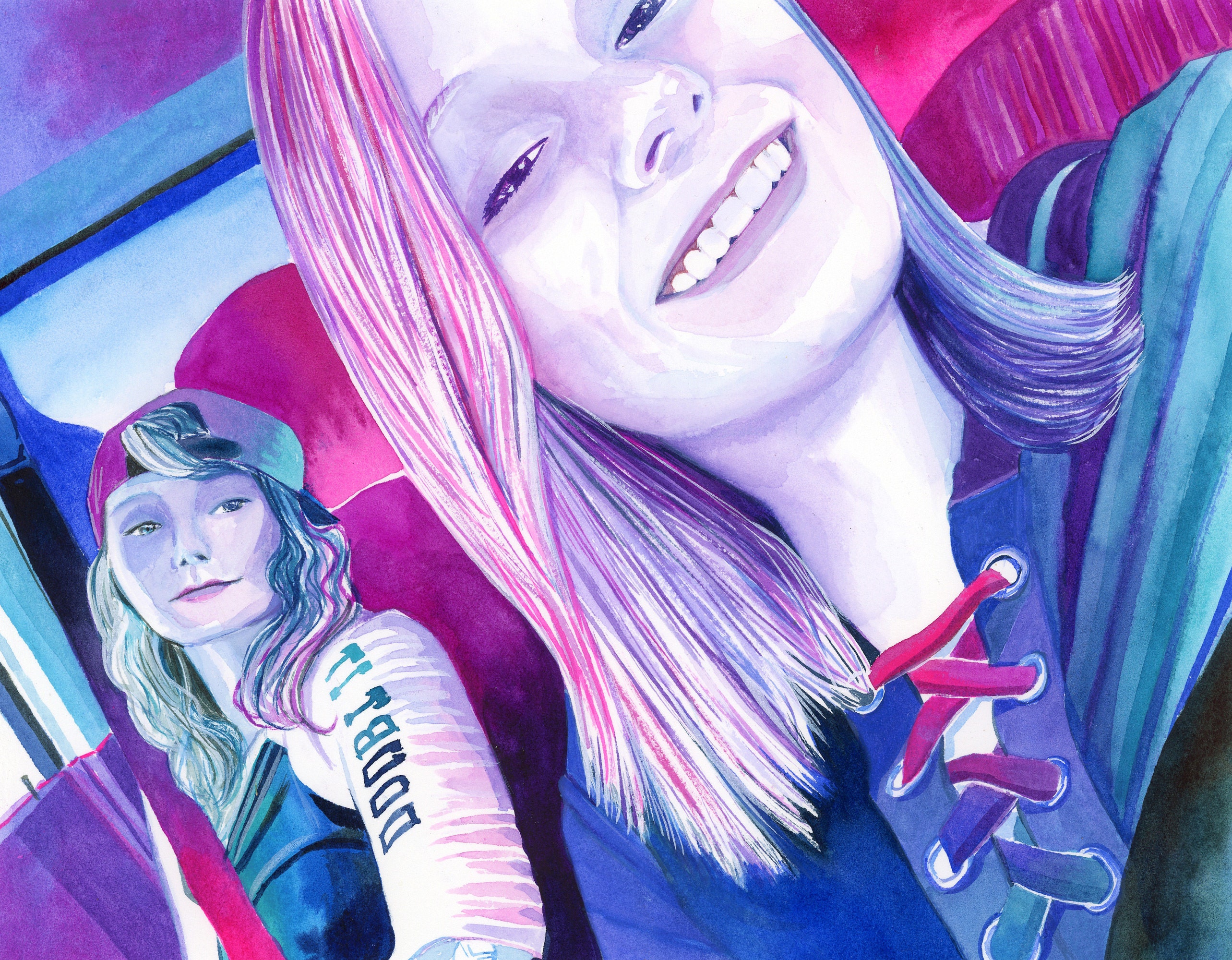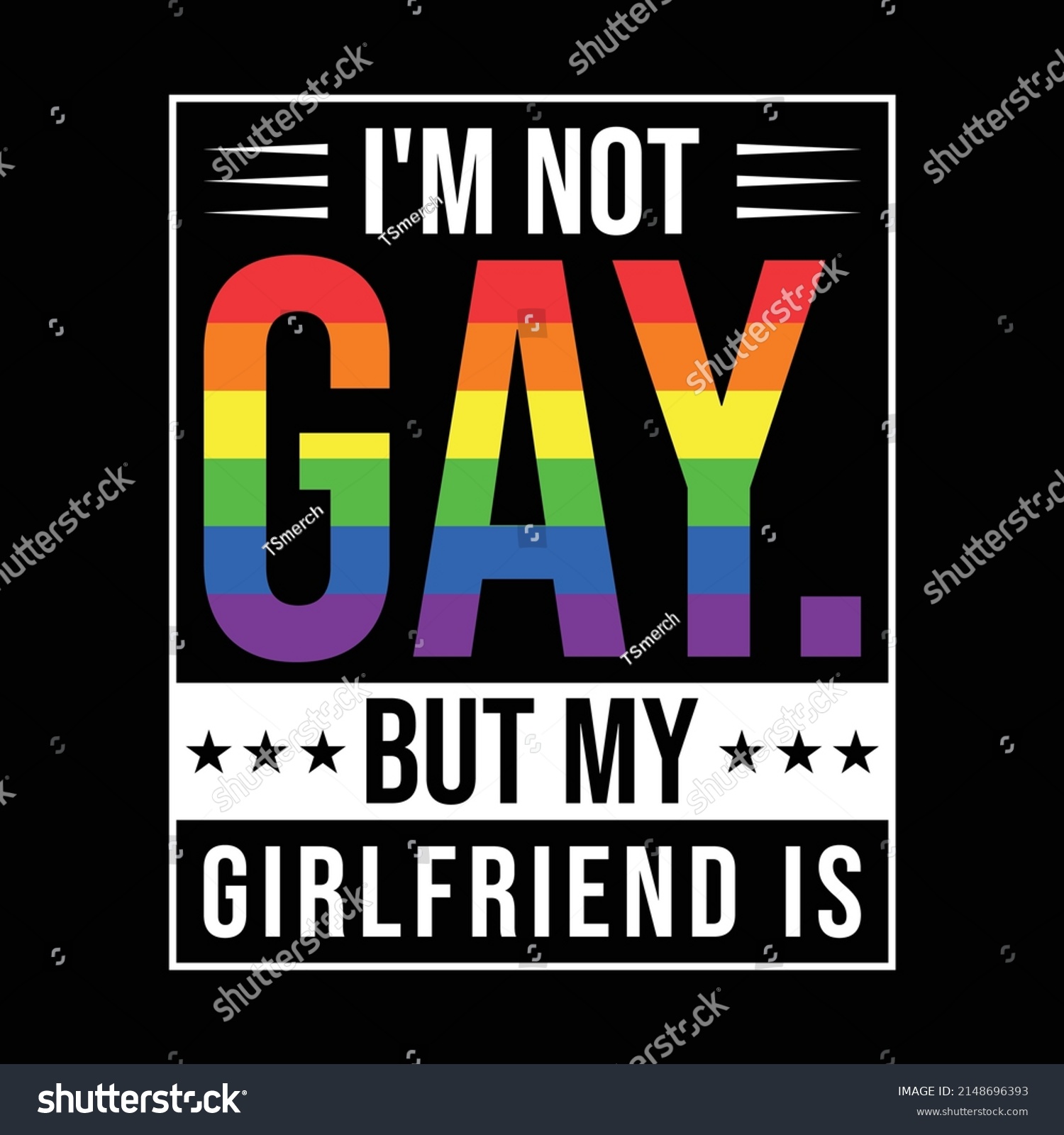So here’s the thing, folks. Sometimes life throws you curveballs that make you rethink everything you thought you knew about relationships, love, and even yourself. Imagine this: you’re in a relationship with someone you care deeply about, but then you discover something that changes the dynamics entirely. You might be thinking, "What does this mean for us?" or "How do I navigate this?" Well, let me tell you, when someone you love reveals their truth, it’s not just about them—it’s also about YOU. And that’s where the real journey begins. So if you’ve ever thought, "My girlfriend is a lesbian," take a deep breath. We’re about to dive into this together.
Now, I know this topic can feel heavy, confusing, or maybe even overwhelming at first. But trust me, it doesn’t have to be. Love is love, and understanding is key. Whether you’re the one who just found out or you’ve been pondering this for a while, this article is here to help you figure things out. We’ll break it down step by step, from what it means to how you can support her and yourself through this journey.
And hey, before we get started, let me just say this: you’re not alone. Millions of people around the world are navigating similar situations right now. So grab a cup of coffee, sit back, and let’s talk about "my girlfriend is a lesbian" in a way that’s honest, real, and supportive.
- Bottom Lip Itching Spiritual Meaning Unlocking The Mysteries Behind This Strange Phenomenon
- Find Your Glow Discover The Enchanting Parque De Las Luces Near You
Table of Contents:
- Understanding Sexual Orientation
- Biography: A Personal Story
- Common Reactions and Feelings
- The Importance of Communication
- Building a Support Network
- Navigating Relationship Dynamics
- Self-Reflection and Growth
- Useful Resources and Tools
- Cultural Perspectives on Love
- Wrapping It All Up
Understanding Sexual Orientation
Alright, let’s start with the basics. If you’ve ever wondered, "What does it mean when my girlfriend is a lesbian?" it’s important to understand sexual orientation. Simply put, a lesbian is a woman who experiences romantic and/or sexual attraction to other women. It’s not a choice, it’s not a phase—it’s a core part of who someone is.
Now, sexual orientation is more complex than just labels. Some women might identify as bisexual, pansexual, or queer, meaning they’re attracted to people across different genders. Others might feel most comfortable identifying as a lesbian. And guess what? That’s okay! Everyone’s journey with their identity is unique, and there’s no right or wrong way to experience it.
- How Long Does Vacuumsealed Meat Last Without Freezing
- Can You Buy A Traffic Light And Make Money Heres The Lowdown
Breaking Down the Myths
There are a lot of misconceptions floating around about lesbians, so let’s clear some of them up. For starters, being a lesbian doesn’t mean someone is automatically masculine or "butch." Gender expression and sexual orientation are two separate things. Some lesbians might be super feminine, while others might lean toward a more androgynous style. The point is, it’s all about personal preference and identity.
Another myth? That being a lesbian is just a phase. Sorry, but nope. Research shows that sexual orientation is deeply ingrained and remains consistent over time for most people. So if your girlfriend identifies as a lesbian, it’s not something she’s "trying out." It’s who she is.
Biography: A Personal Story
Let’s take a moment to explore what it might feel like from her perspective. Understanding her journey can help you better relate to her experience. Below is a fictional example of someone navigating their identity as a lesbian:
| Full Name | Alexandra "Lexi" Thompson |
|---|---|
| Age | 27 |
| Occupation | Graphic Designer |
| Hobbies | Painting, hiking, photography |
| Sexual Orientation | Lesbian |
| Coming Out Story | Lexi always knew she was different, but it took years for her to fully embrace her identity. She came out to her closest friends first, then gradually told her family. It wasn’t easy, but she found a supportive community that helped her feel more confident in who she is. |
Common Reactions and Feelings
When someone you care about reveals they’re a lesbian, it’s normal to have mixed emotions. You might feel surprised, confused, or even hurt. But here’s the thing—these feelings are temporary. What matters most is how you choose to respond.
Here are some common reactions people might experience:
- Shock: It’s natural to feel caught off guard, especially if you weren’t expecting it.
- Confusion: You might wonder what this means for your relationship or future plans.
- Jealousy: Some people feel jealous or insecure about their partner’s attractions to others.
- Support: Many partners ultimately choose to support their loved ones, recognizing that love is love.
Why These Feelings Are Okay
It’s important to acknowledge your emotions rather than suppress them. Talking openly about how you feel can strengthen your bond and help you both move forward. Remember, it’s not about being perfect—it’s about being present for each other.
The Importance of Communication
Communication is the backbone of any healthy relationship. If you’re wondering, "How do I talk to my girlfriend about her being a lesbian?" the answer is simple: be honest, be respectful, and be open-minded.
Here are some tips for having productive conversations:
- Start by expressing your feelings without judgment. For example, "I feel surprised, but I want to understand your perspective."
- Ask questions if you’re unsure about something. Just make sure your tone is curious, not accusatory.
- Listen actively. Sometimes the best thing you can do is simply be there for her.
Setting Boundaries
It’s also important to establish boundaries that work for both of you. Maybe you need time to process things on your own, or maybe you’d prefer to work through it together. Either way, clear communication will ensure you’re both on the same page.
Building a Support Network
No one should have to face challenges alone. Encourage your girlfriend to connect with others who share similar experiences. This could include joining LGBTQ+ groups, attending events, or even finding online communities. Having a support network can make a world of difference.
And don’t forget about yourself! Surround yourself with people who understand and accept your situation. Whether it’s friends, family, or a therapist, having a safe space to express your thoughts can be incredibly beneficial.
Why Community Matters
Being part of a community gives you access to resources, advice, and encouragement. It reminds you that you’re not alone and that there are others who’ve walked a similar path. Plus, it can introduce you to new perspectives and ideas that enrich your life.
Navigating Relationship Dynamics
So, what happens next? If you’re both committed to making things work, there are a few things to consider. First, think about what kind of relationship you want to build. Do you want to remain partners, or is it time to explore other options? There’s no right answer—it’s all about what feels right for you both.
Here are a few things to keep in mind:
- Respect: Treat each other with kindness and empathy, even if the relationship changes.
- Honesty: Be transparent about your needs and expectations moving forward.
- Patience: Give yourselves time to adjust to the new reality.
Exploring New Possibilities
If you decide to stay together, you might find yourselves exploring new dynamics. Perhaps she’s attracted to other women but still values your companionship. Or maybe you both realize it’s time to part ways amicably. Whatever the outcome, prioritize mutual respect and understanding.
Self-Reflection and Growth
Discovering that your girlfriend is a lesbian can be a catalyst for personal growth. Take some time to reflect on your values, beliefs, and priorities. Ask yourself: What does love mean to me? How can I become a better partner and ally?
Self-reflection doesn’t have to be a solo activity. Consider reading books, attending workshops, or joining support groups to deepen your understanding. The more you learn, the better equipped you’ll be to handle whatever comes your way.
Learning from Experience
Every relationship teaches us something valuable. Even if things don’t work out, you’ll walk away with insights that can help you in future relationships. Embrace the lessons and use them to grow stronger.
Useful Resources and Tools
There are tons of resources available to help you navigate this journey. From books and podcasts to online forums and therapy sessions, you’ll find plenty of support out there. Here are a few recommendations:
- Books: "This Is How It Always Is" by Laurie Frankel or "The Art of Hearing Heartbeats" by Jan-Philipp Sendker.
- Podcasts: "The Lesbian Talk Show" or "Queerology."
- Therapists: Look for LGBTQ+-affirming therapists in your area.
Why Education Matters
The more you educate yourself, the better you’ll understand the complexities of love and identity. Plus, it shows your girlfriend that you care enough to invest time and effort into supporting her.
Cultural Perspectives on Love
Love looks different across cultures, and it’s fascinating to explore how various societies view relationships. In some places, same-sex relationships are celebrated, while in others, they’re stigmatized. Understanding these cultural nuances can broaden your perspective and deepen your empathy.
For example, in many Western countries, LGBTQ+ rights have made significant progress. However, in other parts of the world, people still face discrimination and persecution. Recognizing these differences can help you appreciate the courage it takes for someone to come out.
Global Acceptance Trends
According to a 2021 Pew Research Center study, global acceptance of same-sex relationships is on the rise. While there’s still work to be done, it’s encouraging to see more people embracing diversity and inclusivity.
Wrapping It All Up
So, what have we learned today? First, love is complex, beautiful, and worth fighting for. Second, when someone you care about reveals their truth, it’s an opportunity for growth—for both of you. And finally, supporting each other through this journey is the best way to ensure a positive outcome.
If you’re still feeling unsure, that’s okay. Take your time, lean on your support network, and remember that you’re not alone. Millions of people around the world are navigating similar situations, and together, we can create a more compassionate and understanding world.
And hey, one last thing—leave a comment below or share this article with someone who might benefit from it. Let’s keep the conversation going and spread the love!
- Unlock The Mystery Of 150 Divided By 40 A Fun And Informative Journey
- Destructive Peace Understanding The Paradox Of Quiet Turmoil


